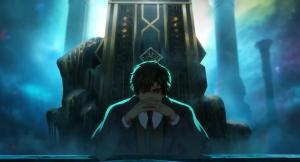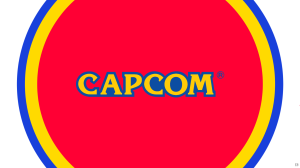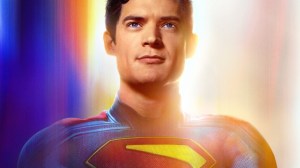The Eisner Award nominees for 2017 were announced last week and, oh boy, were there a lot of them.
Videos by ComicBook.com
The Eisners have expanded throughout their history and covered a lot of valuable ground in doing so. Comics are a diverse medium and it’s great that their most prominent award show offers audiences from all backgrounds a look at that diversity. They cover the wide array of artistic contributions as well as the many different formats and audiences comics focus on.
However, there seems to be at least one very notable aspect of comic books that remains unrecognized by the Eisner Awards: Comics Editors.
The Value of an Award
Before we consider why comics editors deserve their own award, it’s worth pondering why we have awards in the first place. Awards are human systems and therefore imperfect. They can’t really tell us what the best comic, film, or television show of a year is. Art is subjective and the metrics we use to determine what is best vary wildly even among critics and experts. That doesn’t make awards meaningless though.
When an awards ceremony carefully crafts a process to select nominees and winners, they can point to a very high level of quality. While there will always be disputes as to who or what really deserved an award, there’s a general consensus regarding the craft and skill among those nominated. In addition to entertainment and argument fodder, awards offer a starting point for audiences to discover the best of what a medium has to offer. The Eisners may not be perfect, but they help comics readers understand what’s happening in the medium each year: where they should catch up and what might be worth checking out.

The Value of an Editor
Some readers might question what the role of a comics editor is and how it can be recognized. That’s an excellent question and a difficult one because depending on the publisher and creators involved, editors can perform radically different jobs. That doesn’t make them unimportant or impossible to recognize though.
Just consider the role of a comics colorist. To someone new to the medium (or art in general), recognizing the difference between a set of very talented colorists might not come easily. Colorists offer a style, but to the untrained eye it can be difficult to connect that style to a specific eye. Yet it is there and the impact is has on the reading experiencing is incredible. Editors have an impact as well, and it also requires attention and experience to recognize.
It is typically easiest to spot an editor’s impact across their entire line of comics. What they do to influence a single title may be impossible, but when you look at half a dozen comics across a year, trends begin to emerge. Pushes for more diverse content, creators increasing the quality of their storytelling, and better contributions from all individuals involved can be seen in a single editor’s lineup.
That value varies based on where they work as well. At publishers like Marvel and DC Comics, editors act like shepherds, guiding established properties towards new horizons and possibilities. For creator-owned projects, an editor might be focused on keeping the enterprise on the rails without the restrictions of a more formalized structure. In either case, they’re incredibly important to the final product, and these are merely two possibilities in a long continuum of this single, significant role.
There’s a reason that Marvel Comics popularized its bullpen in its first few years of publishing superhero comics though. They recognized the important collaborative nature of comics and how leadership could have an incredible downstream effect. While artists like Jack Kirby and Steve Ditko were inventing the superheroes who would become the most popular heroes of today, editors like Stan Lee, Roy Thomas, and Jim Shooter would shape what was possible for those artists. They determined what would and would not be published and influenced the final product, for better or worse. Editors have been an integral part of American comics as long as superheroes have, and they deserve some recognition as well.

Who Deserves the First Eisner
So if awards do matter and editors deserve to be recognized for their creative work on comics, then who should be nominated for “Best Comics Editor”? It’s too late for 2017, but we have a few thoughts on who would have made excellent nominees. While these suggestions are far from comprehensive, they help to display the incredible work editors put into the medium and why they ought to be recognized.
Mark Doyle‘s recent promotion to head both Vertigo and Young Animal is probably award enough, but his hard work transforming the Batman line into a standard for quality at DC Comics deserves something more. After taking over the brand, Doyle helped to usher in a series of critically acclaimed stories, innovative takes on classic characters, and successful new launches.
Sarah Gaydos’ work at IDW Publishing has made her a favorite name amongst journalists and creators in comics. She has worked tirelessly on a wide array of comics, treating both licensed comics and original creations with immense respect. There’s a consistent quality among everything with Gaydos name on it, and comics is lucky to have her.
Sebastian Girner is the editor to look at when you’re looking at Image Comics’ new revolution. He is associated with some of the most groundbreaking and fascinating titles to come from the publisher, including Southern Bastards and Deadly Class. As Image Comics pushes the boundaries of the mainstream forward, editors like Girner are key in supporting that continued success.
Spike Trotman is a true innovator as a comics editor. She has revolutionized how comics use crowdfunding and established her own publishing model for queer comics away from publishers who shied away from the content. Her success in supporting so many creators and offering a line of comics that are both immensely entertaining and necessary ought to be recognized as widely as possible.
These names are but a few that would need to be discussed by the Eisner nominating committee. Just considering these talented individuals is enough to make it obvious that editors deserve recognition for their contributions. Knowing what these folks put into the entertainment we love is why we hope they’ll be honored with their own category at the Eisner Awards very soon.









